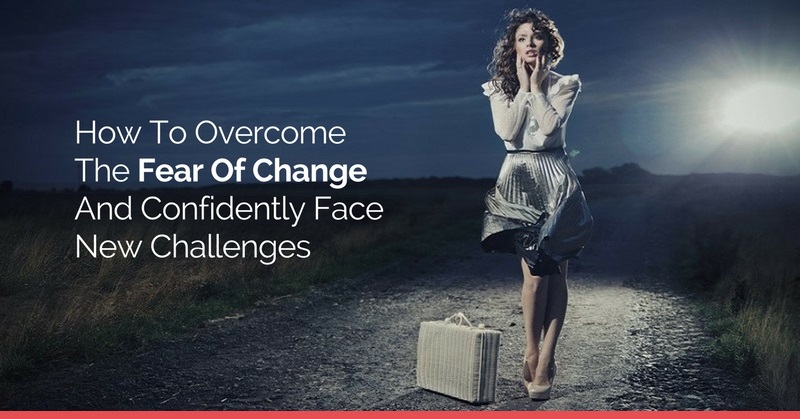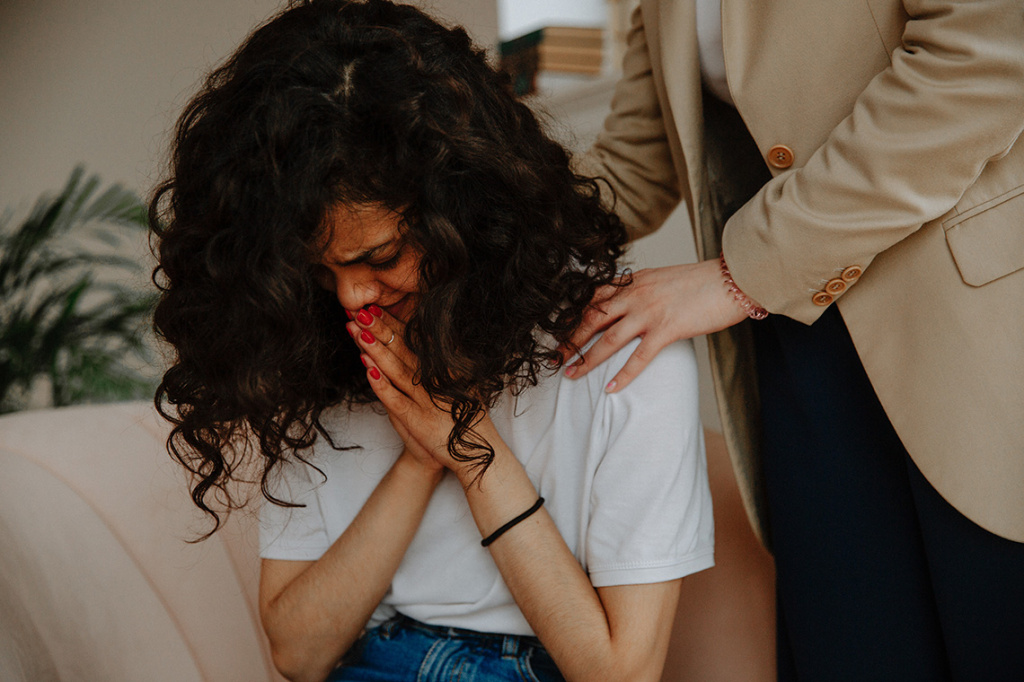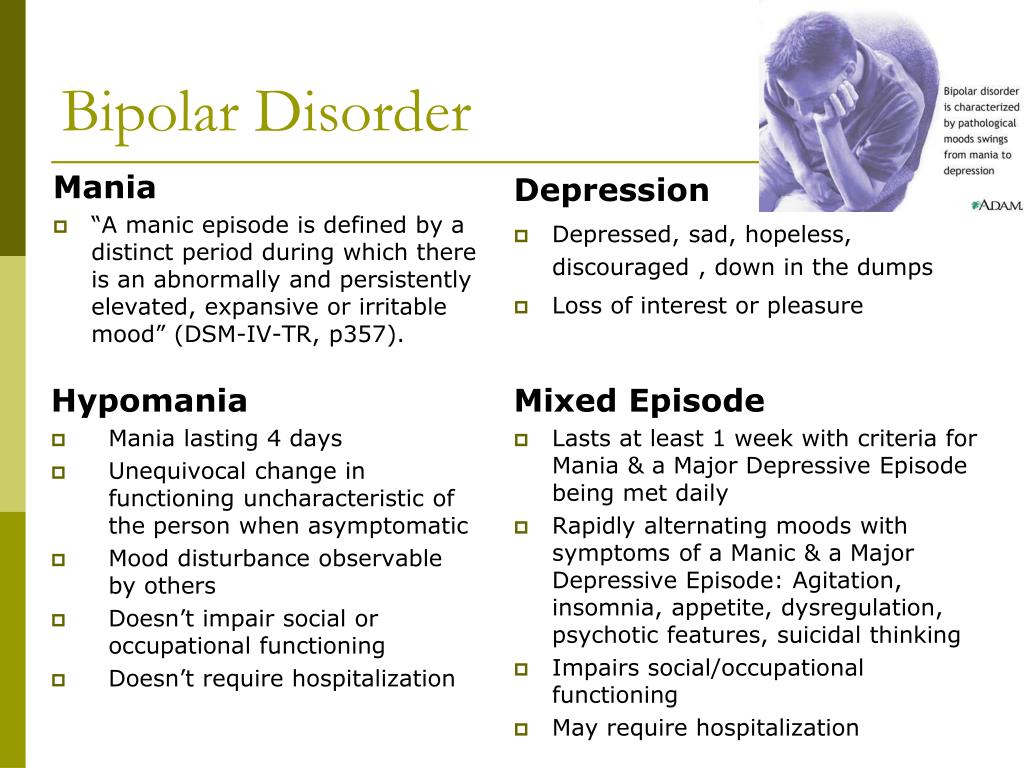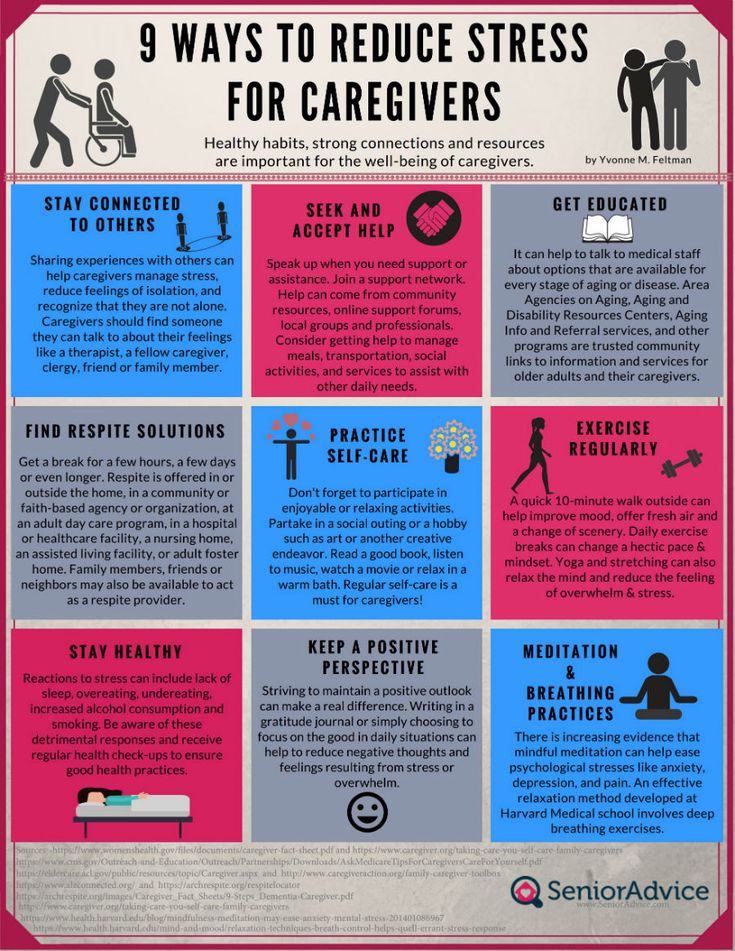The fear of woman
Definition, Symptoms, Causes, and Treatment
What is gynophobia?
A fear of women is called gynophobia. Historians say the term arose to define the fear men experience of being humiliated by women, namely by emasculation. Emasculation means to deprive a man of his masculinity or male identity. In other words, to make him feel weak or not “manly” enough.
Misogyny, or the hatred of women, is another phrase resulting from the male fear of being humiliated by a female. The opposite of misogyny is misandry, which means a hatred of men. Gynophobia can affect both men and women.
Gynophobia symptoms may include:
- an immediate, overwhelming fear or worry or terror when you see or think about women
- an understanding that your fear of women is unwarranted or exaggerated but the fear is impossible to control
- anxiety that gets more intense as a woman gets physically closer to you
- consciously keeping away from women or events where you might see women; or feeling extreme anxiety or fright in situations where you see women
- difficulty doing your daily activities because you are fearful of women
- physical manifestations of your fears such as tightness in your chest, sweating, a rapid heartbeat, or difficulty breathing
- an upset stomach, dizziness, or faintness when you’re near women or thinking about women
In children, gynophobia may appear as tantrums with clinging, crying, or a refusal to leave a male parent’s side or approach a woman.
Gynophobia is a specific phobia because it involves an extreme and irrational fear of something — in this case, women — who are not dangerous in most cases, but still manage to trigger worry and avoidance behaviors. As with other specific phobias, gynophobia is chronic and can significantly impair your ability to maintain your work, education, everyday activities, and social life.
Experts aren’t sure what causes gynophobia. Some possible causes include:
- previous bad experiences with women, such as mental or physical abuse, neglect, rape, physical assault, or sexual harassment
- your genetics and environment, including behavior learned from your parents or the people around you
- changes in the way your brain works
Some people are more prone to gynophobia than others. Those most likely to develop gynophobia include:
- young people, as most phobias — including gynophobia — occur in early childhood, often by 10 years of age
- family members with phobias or anxiety disorders (which you may have learned or inherited)
- a personality or temperament that is more sensitive, inhibited, or negative than other people
- a previous negative experience with women
- being told or reading about a negative experience with women from a friend, family member, or even a stranger
Gynophobia might at first seem like nothing more than an odd personality quirk. However, a phobia of women has the potential to grow into a major obstacle in your life. You should see your doctor if your gynophobia is causing you anxiety that:
However, a phobia of women has the potential to grow into a major obstacle in your life. You should see your doctor if your gynophobia is causing you anxiety that:
- negatively affects your work or school performance
- interferes with your social relationships or ability to be social
- impairs your ability to perform other everyday activities
Your doctor may refer you to a mental healthcare provider for specialized treatment.
Suspected cases of gynophobia should be addressed especially promptly in children. Sometimes children outgrow their fears. But because gynophobia can significantly impair a child’s ability to function in society when they age, their fears should be addressed with professional medical help as soon as possible.
You can ask your doctor to screen you for gynophobia. They will talk with you about your symptoms, and ask you to recall your medical, psychiatric, and social histories. Your doctor will also examine you to rule out any physical problems that might be triggering your anxiety. If they think you have gynophobia or other anxiety disorders, your doctor will refer you to a mental healthcare provider for specific treatment.
If they think you have gynophobia or other anxiety disorders, your doctor will refer you to a mental healthcare provider for specific treatment.
The majority of people with gynophobia receive their treatment in the form of therapy sessions. Gynophobia is treated primarily with psychotherapy, which is also called talk therapy. Exposure therapy and behavioral therapy are the two most common forms of psychotherapy used to treat gynophobia. Medication may also be used as part of the treatment plan for gynophobia.
Exposure therapy
You can change the way you respond to women by learning how to change your behavior. Exposure therapy can help you do that. During exposure therapy, your therapist gradually and repeatedly exposes you to things associated with women. Near the end of your treatment, you are exposed to a real-life woman or women.
Incremental exposures help you to cope with the thoughts, feelings, and sensations associated with your fear of women. A sample treatment plan might include your therapist first showing you photos of women. Your therapist will then have you listen to audio voice recordings of women. Finally, your therapist will show you videos of women. After this, your therapist will have you slowly approach a real-life woman in a neutral space, such as outdoors.
Your therapist will then have you listen to audio voice recordings of women. Finally, your therapist will show you videos of women. After this, your therapist will have you slowly approach a real-life woman in a neutral space, such as outdoors.
Cognitive behavioral therapy (CBT)
Cognitive behavioral therapy (CBT) combines exposure therapy and other therapeutic techniques to teach you different ways to view and cope with your fear of women. Some aspects of CBT include learning how to:
- view your phobia in a different way
- cope with the bodily sensations associated with your phobia
- emotionally deal with the impact your phobia has had on your life
After walking out of your CBT sessions, you should feel more confident, like you have some mastery of your thoughts and feelings instead of feeling overwhelmed by them.
Medications
Usually, psychotherapy alone is very good at treating gynophobia. However, it can sometimes be helpful to use medications designed to decrease your feelings of anxiety or panic attacks associated with gynophobia. Such mediations should only be used at the start of treatment to help speed up your recovery.
Such mediations should only be used at the start of treatment to help speed up your recovery.
You can also use these medications on an infrequent, short-term basis. For example, in situations where your fear of women prevents you from doing something important, such as getting medical treatment from a woman or visiting the emergency room.
Medications used to treat gynophobia include:
- Beta blockers: Beta blockers control the effects of adrenaline on the body. Adrenaline normally surges when the body experiences anxiety, and this can result in uncomfortable and sometimes harmful physical problems including a boost in heart rate and blood pressure, heart palpitations, and a shaky voice and limbs.
- Sedatives: Benzodiazepines help calm your body by diminishing your anxiety. These medications are highly addictive and should be used with caution. Benzodiazepines may not be right for you if you have a history of alcohol or drug use.

Gynophobia can have a huge negative affect on your quality of life. Possible complications of gynophobia include social isolation, mood disorders, substance abuse, and suicidal thoughts or attempts.
It’s critical for you to ask for help if you need it. It’s even more important if you have children who are, or could be affected by, your phobia. Proper treatment can help you reduce your anxiety and enjoy living your life normally again. The key to recovery success is continuing your treatment plan to keep your gynophobia symptoms at bay.
What To Know About The Fear of Women
For those who have the fear of women, you may not be entirely aware of how this fear impacts your daily life. Learning more about this interesting condition is the first step to understanding it before moving forward to a healthy and fulfilling life.
Gynophobia, more commonly known as the fear or loathing of women, is a social phobia. In most cases, men are more likely than women to experience a fear of women. Individuals who have gynophobia may harbor ill-feelings towards women in their families, including mothers, sisters, aunts, and cousins. Moreover, those who fear or detest women abstain from sexual intercourse with, or marriage to, women. We'll dive further into this topic throughout the article.
Individuals who have gynophobia may harbor ill-feelings towards women in their families, including mothers, sisters, aunts, and cousins. Moreover, those who fear or detest women abstain from sexual intercourse with, or marriage to, women. We'll dive further into this topic throughout the article.
Learn To Manage The Fears That Impact Your Daily Life
Discover Insight Into Yourself With A Counselor At BetterHelp!
A Closer Look at the Fear of Women
Medical specialists often attribute gynophobia to traumatic experiences that an individual has gone through that have involved women. This could include an abusive or neglectful mother, undergoing emotional, physical, or sexual abuse from a woman during puberty, or habitual rejection from women. As previously stated, men are more likely to develop gynophobia than other women are, and will likely view women as a whole as untrustworthy or otherwise deceitful.
Both adults and children are capable of developing gynophobia. If the fear and discontentment are not addressed, they tend to carry over into adulthood.
If the fear and discontentment are not addressed, they tend to carry over into adulthood.
While negative experiences increase one's likelihood of developing gynophobia, Healthline affirms that other factors increase the probability of a person developing a fear of women. High levels of emotional sensitivity and proneness to negativity make one more susceptible to disliking or dreading women.
Individuals who have relatives with anxiety disorders or other social phobias may be more likely to experience gynophobia. Finally, observing, hearing, or reading about adverse encounters with the female gender can breed apprehension. Overall, individuals as young as 10 years old are more prone to phobias than their older counterparts. Although mental health specialists remain uncertain about the exact cause of gynophobia, negative experiences with women remain the most likely factor, followed by one's heredity, environment, and changes in the brain.
Gynophobia and Misogyny
In many circumstances, gynophobia and misogyny are used interchangeably. Misogyny is defined as the "hatred of, contempt for, or prejudice against women or girls." While some people view these two terms as synonymous, others make the case that the fear of women breeds hatred, contempt, and prejudice against women. In other words, in the eyes of some individuals, gynophobia is the parent of misogyny.
Misogyny is defined as the "hatred of, contempt for, or prejudice against women or girls." While some people view these two terms as synonymous, others make the case that the fear of women breeds hatred, contempt, and prejudice against women. In other words, in the eyes of some individuals, gynophobia is the parent of misogyny.
Gynophobia's classification as a social anxiety disorder explains why fear is triggered by coming in contact with women. Unlike misogynists, someone who lives with the clinical fear of women is likely to experience cold sweats, nausea, and increased heart rates when they come into contact with women. Therefore, gynophobic individuals usually do everything they can to abstain from contact with women. This includes avoiding physical and verbal interactions. When people who have gynophobia come in contact with women, they usually feel inclined to separate themselves immediately.
Different Than MisogynyUnlike gynophobia, misogyny is entirely within one's control. Individuals who loathe women and who harbor prejudices against them exert this form of negative energy upon interacting with them. Furthermore, misogyny is not a clinical illness. People who experience this condition are not plighted with the aforementioned physical symptoms that accompany a genuine phobia of women.
Individuals who loathe women and who harbor prejudices against them exert this form of negative energy upon interacting with them. Furthermore, misogyny is not a clinical illness. People who experience this condition are not plighted with the aforementioned physical symptoms that accompany a genuine phobia of women.
Gynophobia and misogyny are wholly different entities. While gynophobia is a clinical phobia of all women, misogyny targets specific categories of women.
Treatment Options For Gynophobia
The fear of women may not appear as a serious issue to most people, but Healthline affirms that this phobia can adversely impact an individual's career, personal and professional relationships, and the ability to function properly in everyday life. People who experience this disorder are strongly recommended to seek out medical treatment if gynophobia begins to wreak havoc upon work, schooling, or interactions with others. In many cases, a doctor will advise individuals who have gynophobia to either engage in therapy or take medication.
Cognitive Behavioral Therapy
Individuals who have gynophobia may be recommended to engage in cognitive behavior therapy. This form of treatment adopts a psychological approach to understanding, and ultimately, combatting the fear of women.
Cognitive-behavioral therapy encourages afflicted persons to view their phobia in a different light, learn how to master and control the associated symptoms of the disorder, and handle emotional repercussions. After this form of treatment has run its course, the plighted individual should experience confidence, the ability to control their thoughts, and feelings of relief.
Medication
In some circumstances, a doctor will decide that medication is more suitable to combat the phobia of women than the above forms of therapy. More often than not, medication is used to ease the gynophobic offshoots of panic attacks and anxiety. However, the medication should only be administered in the very beginning stages of treating gynophobia.
If the afflicted individual is prescribed medication, they will likely receive beta-blockers or sedatives. Ultimately, both forms of medicine are designed to tackle gynophobia. However, they go about the matter in a somewhat contrasting manner.
Beta-blockers focus on calming the adrenaline that the body experiences during anxiety attacks. This can have a monumental impact, seeing as unchecked anxiety can engender higher blood pressure, wobbly limbs, shaky voices, heart palpitations, and heart rate increases.
While beta-blockers concentrate on counteracting negative impacts of anxiety associated with gynophobia, sedatives lessen anxiety altogether. However, sedatives are extremely addictive and should only be taken with the utmost vigilance. Moreover, individuals who have had prior issues with drugs or alcohol should abstain from sedatives altogether.
Learn To Manage The Fears That Impact Your Daily Life
Discover Insight Into Yourself With A Counselor At BetterHelp!
Although all forms of treatment are employed to combat gynophobia, exposure therapy and cognitive behavioral therapy hone in on the root of gynophobia. Medication mainly focuses on tackling the symptoms of the phobia, not the underlying cause. It’s crucial to speak to your doctor about any potential medication option beforehand, to avoid negative side effects.
Medication mainly focuses on tackling the symptoms of the phobia, not the underlying cause. It’s crucial to speak to your doctor about any potential medication option beforehand, to avoid negative side effects.
How To Work On Your Phobia
Every human being is faced with various challenges or difficulties that they must overcome. Focusing your energy towards overcoming the phobia is considerably more productive and will benefit each person in the long run. That said, here are some ways that you can tackle your gynophobia on your own.
- Do Your Best To Understand Your Fear
Phobias do not just come out of anywhere. As we discussed above, phobias will typically come from traumatic experiences that have been ingrained into our personality at a very young age as a result of external influences. The only way that one can properly fight a phobia is to understand where that fear is coming from. Take some time to think about when you first started becoming fearful of women and how it changed over time.
2. Know The Extent Of Your Fear
Some people with phobias may have a moderate struggle dealing with their fears, while others may have more severe reactions that can completely debilitate them if they are in the presence of the thing they fear most. Do you know where your reaction lies? Can you be in the same room as women, or does the mere thought of being around a woman paralyze you? How extensive is your fear, and what can you do to decrease that?
3. Try Testing The Waters
Going too fast, too soon, can have a detrimental effect on the recovery process, and it is not recommended that you try to face your fears all at once. However, you should try to see if you can face your fears one step at a time. When you see that you are more than capable of being around women without something bad happening, you are able to do it more often and relieve yourself of your fears.
- Seek The Help Of A Therapist
As previously stated, conquering gynophobia is a process. It does not happen overnight, although having a strong support system can make recovery much easier and smoother. No matter what one is going through in life, the benefits of a strong, loving, and compassionate support system are well documented. Being able to ask for help and support is not a sign of weakness, but of strength. An individual who knows when to seek assistance is incredibly self-aware, a trait that will prove invaluable to them as they journey through life.
It does not happen overnight, although having a strong support system can make recovery much easier and smoother. No matter what one is going through in life, the benefits of a strong, loving, and compassionate support system are well documented. Being able to ask for help and support is not a sign of weakness, but of strength. An individual who knows when to seek assistance is incredibly self-aware, a trait that will prove invaluable to them as they journey through life.
Recent research points to online therapy platforms as useful resources for helping individuals work through complicated emotions related to phobias. For example, in one study, published in Cyberpsychology, Behavior, and Social Networking, researchers examined the effects of online cognitive-behavioral therapy (CBT) on those with the fear of public speaking. The therapy produced positive results in participants, with gains being sustained at a 1-year follow-up. As discussed previously, cognitive-behavioral therapy works by helping individuals understand and replace the negative, intrusive thoughts underlying unwanted feelings and behaviors, such as symptoms related to a fear of public speaking or a fear of women.
As mentioned above, if you need help addressing the symptoms of a specific phobia, online therapy is there. If you are uncomfortable receiving treatment face to face, online therapy is often a more discreet option. With BetterHelp, you can participate in counseling from the comfort of your own home, via videoconferencing, messaging, voice call, or live chat. Plus, you’ll have the option of undergoing therapy completely anonymously by simply selecting a “nickname” when you register, if you prefer. The qualified mental health professionals at BetterHelp know how to help you address your fears. Read below for counselor reviews, from those who have sought help in the past.
Counselor Reviews
"Brandon has been great and really instrumental in helping me get through a difficult period in my life. He is non-judgmental, responsive, and a great listener. He is also great at reading into what you are saying and finding the underlying cause of your fears and helping you work through it. I'm excited to continue the work to heal with the help of Brandon."
I'm excited to continue the work to heal with the help of Brandon."
“I matched with Alex 3 months ago at a time where I felt like I was barely hanging on by a thread and could barely perform basic functions without bawling my eyes out. She helped me face all my traumas, fears and anxieties head on and in such a short amount of time, that I feel like I can conquer anything! She is quick and gets things done, but is also so friendly, respectful and patient. Each session felt like I was talking to an trusted old friend. I would definitely recommend Alex to anyone! Thanks again for all your help :)”
Conclusion
While phobias may seem unconquerable, plenty of people who have had their own overwhelming fears have been able to work through them, and you can do the same. You can learn more about your fear of women and what you can do to conquer it using the guide above. Without the fear of women holding you back, you can accomplish more in life—all you need are the right tools.
Women's fears | What are women afraid of
Each of us is afraid of something. Everyone has their own life experience and their own problems. But all these fears seem small and insignificant in comparison with the main fear. Every Russian woman knows that this is inevitable and unavoidable. And everyone is afraid, and everyone lives with this fear all their lives.
Snezhana Gribatskaya
Tags:
Madonna
VOICE Tips
Women's psychology
fears
old age
We are desperately afraid of getting old.
In principle, the fear of old age is completely natural. This is just one of the transformations of the fear of death that has been haunting us since the very moment we know what death is and understand that we cannot avoid it. That is, in deep childhood. Parents, wanting to console us, explain: this man was very old, he was already tired of living, he was sick and suffered a lot, but now he does not suffer. This is how we understand that old age is a terrible torment, stretched out in time, which always ends the same way. And that doesn't make it any easier for us. True, we quickly forget about this horror - this is how the psyche of children works. But this chthonic monster sits deep within us. And opens his mouth at the most inopportune moment. When we are already adults, but still young and full of energy. And you know what? This fear visits every person, but it lives in us all the time. He is very ours, very Russian. Very feminine.
That is, in deep childhood. Parents, wanting to console us, explain: this man was very old, he was already tired of living, he was sick and suffered a lot, but now he does not suffer. This is how we understand that old age is a terrible torment, stretched out in time, which always ends the same way. And that doesn't make it any easier for us. True, we quickly forget about this horror - this is how the psyche of children works. But this chthonic monster sits deep within us. And opens his mouth at the most inopportune moment. When we are already adults, but still young and full of energy. And you know what? This fear visits every person, but it lives in us all the time. He is very ours, very Russian. Very feminine.
Hurry before it starts
We begin to struggle with old age long before we notice its first signs. In fact, some start before puberty is over. You need to urgently go on a diet, otherwise everything will sag later! You need to take care of your skin, at 30 it will be too late! “Late” is generally the scariest word in our vocabulary. That is why twenty-year-old girls sign up for cosmetologists, and not for facial cleansing, but for procedures that are designed to "slow down the aging process." While we are chasing eternal youth, real, natural youth is gone forever. And we fall into a panic: old age is ahead! We do not allow ourselves to be mature. We steal from ourselves at least thirty beautiful years that we can live between youth and old age. Hit 35? "That's it, I'm an old woman!" we say to ourselves. Why are we so stupid?
That is why twenty-year-old girls sign up for cosmetologists, and not for facial cleansing, but for procedures that are designed to "slow down the aging process." While we are chasing eternal youth, real, natural youth is gone forever. And we fall into a panic: old age is ahead! We do not allow ourselves to be mature. We steal from ourselves at least thirty beautiful years that we can live between youth and old age. Hit 35? "That's it, I'm an old woman!" we say to ourselves. Why are we so stupid?
Double standards
Because we were born in this paradigm. Because we have been taught from early childhood to think that we have very, very little time to be women. 15 years, no more. Then - everything. The standard of beauty for a woman is "young and beautiful". For men, he is different: young and beautiful, mature and beautiful, old and beautiful. Men age “nobly”, women age “ugly”. Gray hair and wrinkles adorn men, baldness makes them brutal, the abdomen is “cozy”. Thanks to nature for at least not going bald, but this, in general, does not save us. Because our face oval and chest sag. It would seem - well, what's the difference? That
Thanks to nature for at least not going bald, but this, in general, does not save us. Because our face oval and chest sag. It would seem - well, what's the difference? That
A woman is a commodity
And the commodity must be fresh. Elastic, smooth and poured. A woman is not exactly human. She is, first of all, a tool that helps a man to enjoy. At the same time, mind you, it is absolutely not enough to create a family with a man, give birth to children for him, well, and provide that very “comfort in the house”, oh no. Any women's forum is full of topics on how to get in shape faster after giving birth. In the reverse form - in the one that pregnancy did not spoil. Make a montage for your husband, baby. Glue in one frame your little ones and yourself - five years ago. Maybe then he won't notice that you're fucking getting old.
And we're taking it further
VOICE has repeatedly published photos of actor Hugh Jackman and his wife, Deborah Lee Furness, who is known to be somewhat older than her husband. And every time we read the same comments from readers: “Well, how can he, she’s so old!” Most of these comments, that's scary. We women say this about another woman, and therefore about ourselves. We won't be loved when we get old. We cannot be loved at all, because we will become wrinkled and scary, which is fu. Unaesthetic. We can be congratulated - we very cleverly stole from ourselves not only maturity, but also love: "what is love" when the face has already wrinkled? Wrinkles also cross out the years lived together, and tender friendship, and feelings, and that very “kinship of souls”. There is no spoon, Neo. There is only our drooping bottom, our "lifeline" at the waist, our gray hair and wrinkles. We think "it's impossible to want", meaning "therefore, it is impossible to love."
And every time we read the same comments from readers: “Well, how can he, she’s so old!” Most of these comments, that's scary. We women say this about another woman, and therefore about ourselves. We won't be loved when we get old. We cannot be loved at all, because we will become wrinkled and scary, which is fu. Unaesthetic. We can be congratulated - we very cleverly stole from ourselves not only maturity, but also love: "what is love" when the face has already wrinkled? Wrinkles also cross out the years lived together, and tender friendship, and feelings, and that very “kinship of souls”. There is no spoon, Neo. There is only our drooping bottom, our "lifeline" at the waist, our gray hair and wrinkles. We think "it's impossible to want", meaning "therefore, it is impossible to love."
True, we are not like that yet. We are still fresh. And so we rush at the unfortunate Deborah: how could it be, we should have been in her place! Those who have not yet wrinkled their faces. And in place of the Madonna, too. And in the place of this one, like her there, who grabbed Khal Drogo for herself. We look around and understand: but we don’t have such people, it seems. We have either desperately rejuvenating women who try to look no older than their husband, or Alla Borisovna. But Alla Borisovna is a man of the era, she can. And the rest - no, no. Everything is exactly the opposite with us: every aging star strives to find a younger maiden. We lost girls. Because while we fought desperately with time, new women have grown.
And in place of the Madonna, too. And in the place of this one, like her there, who grabbed Khal Drogo for herself. We look around and understand: but we don’t have such people, it seems. We have either desperately rejuvenating women who try to look no older than their husband, or Alla Borisovna. But Alla Borisovna is a man of the era, she can. And the rest - no, no. Everything is exactly the opposite with us: every aging star strives to find a younger maiden. We lost girls. Because while we fought desperately with time, new women have grown.
We are not like that - life is like that
You can object to us - what do Russian women have to do with it? All women are like that! All the ladies of Hollywood after 35 go under the knife, and some completely lose face in the pursuit of youth. Nobody wants to grow old, everyone wants to be young, everyone is ready to risk their health and even life just to hold back the run of time, just to wipe the traces of this run from their faces. And you will be wrong.
And you will be wrong.
Because nobody really wants to grow old. Not a single person on earth. Moreover, actresses do not want this - and they can afford to prolong their youth, yes. Real youth: they meet young men, they give birth to children, they work and relax, they star in candid photo shoots, they say: “Well, yes, I don’t want to grow old - I have the right!”
We don't have that right. We have the right to silently leave the arena of youth immediately into old age. We have the right to obsequiously chuckle when some man thoughtfully declares: “I wouldn’t blow this one, it’s already ancient.” We have the right to listen to the disgusting saying about the ticking clock. We have the right to agree that after 35 a woman is no longer a cake, but after 45 she is an old woman. We have the right to pay for expensive anti-aging procedures, despite the fact that we have not been on vacation for 5 years. We have the right to put everything we have on this altar. Bet the last one and lose.
Bet the last one and lose.
In the meantime
Meanwhile, old age disappears. Even here, even now. Our grandmothers go out in the morning to Nordic walking classes with some mysterious gentlemen. Our mothers post selfies from the fitting room on Instagram (The social network is recognized as extremist and banned on the territory of the Russian Federation) and collect compliments. Our older sisters are considering whether to have a baby at 40, or a little longer. They all experienced that very terrible moment when they had to admit: that's it, the young one is no longer young. And you know what? They no longer fear old age. Because they suddenly opened a beautiful maturity.
But if you ask them frankly what they regret, they will tell you: “I regret not living to the fullest before.” Guess why?
What women are afraid of: CEOs of large companies told about their professional fears
37% of female managers have a fear of burnout and loss of interest in work and life. Women at the head of Microsoft, Bonduelle, Unilever and Whirlpool told what else worries them and how they deal with their fears0070
Women at the head of Microsoft, Bonduelle, Unilever and Whirlpool told what else worries them and how they deal with their fears0070
Specially for Forbes Woman, the consulting company Kontakt InterSearch Russia conducted a study among top managers, dedicated to the main fears of leaders. 711 respondents took part in the survey. As a rule, one top manager experiences more than three fears at the same time.
To the question “What were you afraid of when you were building a career?” 47% of women answered that they were afraid of being left without a job. Similar fears were in 29% of men. 32% of women said they were afraid of failing or making the wrong decisions. The fear of not being heard or losing the trust of the leader was felt by 21% of the women surveyed, respectively. At the same time, 26% did not experience any fears at all.
Men who are confident in their abilities turned out to be slightly more - 29%. The fear of not being an authority or a leader for the team was experienced by 24% of the men surveyed. 26% felt they didn't know anything.
The fear of not being an authority or a leader for the team was experienced by 24% of the men surveyed. 26% felt they didn't know anything.
Already occupying a leadership position, women are most afraid of emotional burnout and loss of interest in work and life. This was stated by 37% of the respondents. The fear of not influencing decisions and not being heard was found in 36%. The fear of new challenges due to the crisis of 2020 was noted by 18% of executives (only 5% of men experience the same fear). 2% of women are afraid to move to a lower position. Interestingly, 3% of male managers said they were generally afraid of being unemployed, and 19% are afraid of losing a strong team.
Ekaterina Eliseeva, Head of Bonduelle Eurasia
Fears are inevitable in our lives, they are often associated with our constant desire to be accepted by society, to be successful in its eyes. So, in my youth, I was very afraid to take exams, so I always went first, and if I didn’t, I got so nervous that I forgot everything. People around me thought that I was a real upstart, but in fact I struggled with fear so much.
People around me thought that I was a real upstart, but in fact I struggled with fear so much.
Then I was afraid of public speaking in front of strangers. Once, even at the very last moment, I refused to perform, for which I am still ashamed.
But all these fears are nothing compared to the main fear that I have in my life every day. As a business leader, I think every day about how to provide a safe environment for employees. How to make the principles of safe behavior in the workplace become their internal culture. How to ensure that no one gets hurt in their workplace. It is terrible to underestimate the risks and as a result face an accident at work.
There is only one way to deal with this fear - daily work on eliminating risks, daily communication. An accident can happen, so this fear will not go away, but I can make sure that the risk of such accidents tends to zero in my enterprise.
Kristina Tikhonova, President of Microsoft in Russia
At the very beginning of a career, most managers' fears are associated with stereotypes that are formed in society as a whole. The fear of not meeting them can have an extremely negative impact on professional development.
The fear of not meeting them can have an extremely negative impact on professional development.
For example, at the beginning of my career, there was still a stereotype that the fields related to the exact sciences were purely masculine. It is today that IT is becoming one of the most promising areas for women who want to build a successful career - a relatively young, democratic industry where skills play a major role. But not so long ago, IT, telecom and other technical fields were associated with "male" professions, so there was a certain fear that opportunities for self-realization would be limited. This intersects closely with the common misconception (which most women leaders face) that at some point in life you have to make a choice between career and personal life.
However, not only stereotypes give rise to fears. The heart of any business is people. The success of any leader and the company as a whole depends on the ability to build a team, interact with it. At the moment, I’m afraid to stop “feeling” and understanding the real picture of the business and team development process, due to the fact that employees may become afraid to tell the truth or express a different opinion than mine. Regardless of the role, position in the company or professional tasks, each employee must be included in the development of the business. It is important that everyone participates in the process of creating a diverse work environment, where every opinion, every look is taken into account - this is when the team opens up and begins to work at full capacity.
At the moment, I’m afraid to stop “feeling” and understanding the real picture of the business and team development process, due to the fact that employees may become afraid to tell the truth or express a different opinion than mine. Regardless of the role, position in the company or professional tasks, each employee must be included in the development of the business. It is important that everyone participates in the process of creating a diverse work environment, where every opinion, every look is taken into account - this is when the team opens up and begins to work at full capacity.
Regina Kuzmina, President of Unilever in Russia, Ukraine and Belarus
The biggest fear is to stop developing and stop being relevant, because the changes taking place in the market with people, with processes, in the management culture are colossal. Therefore, relying solely on your managerial experience is no longer enough. You understand that if you are guided only by what you had in the past, you will always lag behind the present and stay behind the future. Therefore, I am constantly frightened by the fact that if at some point I relax and devote time only to the operational management of the company and processes, then I will not have the opportunity to develop independently. And I will simply cease to be an effective leader, the leader who is about half a step ahead. Those who understand the world around them, who have access to these correct signals from the future, which make the company efficient and competitive.
You understand that if you are guided only by what you had in the past, you will always lag behind the present and stay behind the future. Therefore, I am constantly frightened by the fact that if at some point I relax and devote time only to the operational management of the company and processes, then I will not have the opportunity to develop independently. And I will simply cease to be an effective leader, the leader who is about half a step ahead. Those who understand the world around them, who have access to these correct signals from the future, which make the company efficient and competitive.
Olga Loskutova, Whirlpool North American Washers & Dryers Business Vice President
As a leader, there is a fear of not finding the right rhythm and speed to move forward. It is important to be persistent and active enough to implement the planned changes and build a successful business, but at the same time understanding and patient enough to lead the team and not push people away from you.














